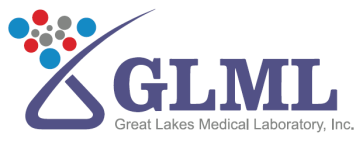Have you ever wondered what your blood can reveal about your health, and do you fully understand the significance of the tests we perform?
In short, it can tell you everything about your health.
Great Lakes Medical Laboratory (GLML) is a full reference diagnostic laboratory, meaning we have the tools and capacity to facilitate world-class personalized patient care.
So, let’s start off with the basics.
What is Blood?
Blood is a bodily fluid with four main components: plasma, red blood cells, white blood cells, and platelets.
Blood serves various vital functions, such as transporting oxygen and nutrients, forming clots to prevent excessive bleeding, carrying infection-fighting cells and antibodies, and transporting waste products for filtration by the kidneys and liver.
It also helps regulate body temperature. Whole blood, comprising approximately 55% plasma and 45% blood cells, circulates through veins, arteries, and capillaries.
Did you know blood typically accounts for 7-8% of total body weight, with an average-sized man having around 12 pints and an average-sized woman having about nine pints? Interesting, right?
The medical specialists who conduct these tests are called hematologists.
The Importance of Hematology in Healthcare
Hematology, the study of blood and blood disorders, serves as a vital compass guiding us through the intricate terrain of our health.
Healthcare professionals rely on hematology to decipher the messages hidden within our bloodstream through blood analysis.
Key Blood Parameters: Understanding What They Mean
Key blood parameters, also known as blood tests or blood markers, are essential measurements used to assess various aspects of health.
They include the testing of the red blood cell count, white blood cell count, hemoglobin levels, and platelet count.
H2: Common Blood Tests and Their Interpretations
Blood tests can help your doctor determine how different organs in your body are working.
Examples of organs whose malfunctions can be visible in a blood test include your heart, thyroid, liver, or kidneys.
Your doctor can also use blood tests to search for markers of diseases and health conditions such as:
- HIV
- Anemia
- Cancer such as Leukemia
Blood tests can indicate whether the medications you’re taking for a health condition are working properly or assess how well your blood is clotting.
Five Types of Common Blood Tests
- Complete blood count (CBC)
- Basic metabolic panel
- Thyroid panel
- Coagulation panel
- C-reactive protein test
Example: What a CBC Panel Tests and Indicates
- Red blood cells (cells responsible for carrying oxygen throughout the body)
- White blood cells (immune system cells in the blood)
- Platelets (the substances that control the clotting of the blood)
- Hemoglobin (protein within the red blood cells that carries oxygen to organs and tissues and carbon dioxide back to the lungs)
- Hematocrit (percentage of blood made of red blood cells)
Abnormal levels of these components may indicate:
- Nutritional deficiencies, such as vitamin B6 or B12
- Anemia (iron deficiency)
- Clotting problems
- Blood cancer
- Infection
- Immune system disorders
Based on your results, your doctor will order follow-up tests to confirm abnormal levels and a possible diagnosis.
Our diagnostic laboratory of experts works tirelessly to conduct blood tests, ensuring accurate results according to international standards.
Hematology Innovations: Advances in Blood Testing Technology
Hematology marches forward, embracing innovation and technological advancement.
- Precision Medicine. Advancements in precision medicine, driven by genetic sequencing and molecular diagnostics, promise tailored therapies for blood disorders and cancers, potentially revolutionizing hematology.
- Immunotherapy. Immunotherapies, such as chimeric antigen receptor (CAR) T-cell therapy, hold promise for treating blood cancers like leukemia and lymphoma. Ongoing research aims to enhance their effectiveness and safety while exploring new immunotherapeutic strategies.
- Artificial Intelligence (AI) and Machine Learning. AI algorithms can analyze vast datasets of patient information and genetic data to optimize treatment strategies for individual patients while also improving the accuracy of blood disorder diagnosis through AI-powered diagnostic tools.
- Stem Cell Research. Stem cell research may revolutionize blood disorders and cancer treatments through transplantation and regenerative methods. It uses induced pluripotent stem cells (iPSCs) and other types to generate healthy blood cells.
- Liquid Biopsies. Non-invasive liquid biopsies are under development to detect and monitor blood cancers and other hematologic disorders, potentially enabling earlier detection and personalized treatment adjustments.
Hematological tests have a significant role in diagnosing and identifying blood-related conditions and aiding in treatment procedures.
In addition to our dedicated hematology laboratory medical testing services, you can browse our comprehensive test directory to see our full range of diagnostic tests.
Contact us for more information and to schedule an appointment.
Photo by Karolina Kaboompics




